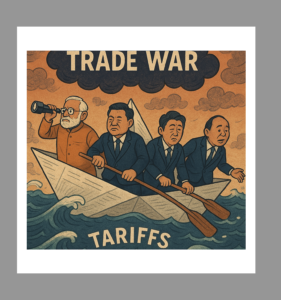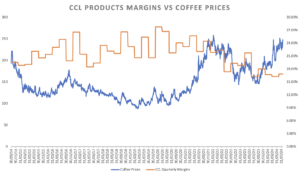Investing in the markets presents challenges, and emotions are a significant hurdle to overcome. In today’s world, with easy access to news and opinions, it’s effortless to get carried away by noise and information overload.
Controlling emotions while investing is an essential skill. Making hasty and emotion-led decisions can derail the process of creating wealth and generating long-term alpha.
Panic is a common emotion in falling markets, and to some extent, it’s understandable. Seeing multiple days of red and negative symbols can create a sense of panic. However, it’s essential to go back to your research, ideas, and thoughts, review them, and if your research still holds good, it’s wise to ride out the tough patch.
The same emotion holds true when markets are surging and rising. It’s crucial to review your portfolio and make decisions based on valuations, market dynamics, and company-specific data and growth.
One of the most significant emotions that investors experience is the fear of missing out, or FOMO. It’s tempting to buy a stock just because it’s rising, and everyone is talking about it. Reading Twitter threads and seeing everyone talk about a particular stock can hinder practical and cautious thinking. However, such impulsive decisions could result in buying high and selling low.
One way to overcome such emotions is to have conviction in investment decisions. If we have done our research and invested in companies that we believe in, we should hold on to our investments, even during market downturns. Remember, investing is a long-term game, and it’s essential to have patience and discipline to reap the rewards.
Personally, I play golf to calm down and get away from the markets and the noise. It acts as meditation for me. Similarly, it’s essential to find a place to get away from the markets and clear your mind. Developing a hobby can be of great help.
Controlling emotions is a continuous process that requires constant adaptation to situations. When Covid struck the world, the initial response was that it’s the end of the world, and markets reacted the same way. I remember seeing my portfolio falling sharply when the lockdown was announced. Markets were halted for a few minutes as the index fell more than 5% in 45 minutes of market opening. It was challenging not to act based on emotions and believe that there can be a solution or end to the lockdown and ultimately Covid.
Successful investors who have been through such challenging situations knew that it would revert and added funds and invested. However, they haven’t gained such conviction and control over their emotions overnight; it’s a process.
Remember, investing is more about managing yourself than managing money. Investing is not only about picking the right stocks or making the right trades; it’s about managing your emotions, biases, and behaviours. Successful investors understand their own risk tolerance, financial goals, and decision-making tendencies and develop strategies that align with these factors.
Regards,
Bhavya Sonawala






